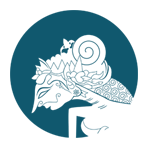A Systematic Literature Review on the Application of Behavioral Counseling and Self-Management Techniques in Indonesia: Insights into Career Maturity Development
 Country:
Country:
(1) Department of Guidance and Counseling, State University of Malang, Indonesia, Indonesia
(2) Department of Guidance and Counseling, State University of Malang, Indonesia, Indonesia
(3) Department of Guidance and Counseling, State University of Malang, Indonesia, Indonesia
(4) Department Master of Applied Linguistics, The University of Melbourne, Australia, Australia
Abstract: This study examines the effectiveness of self-management techniques in enhancing students' career maturity through a systematic literature review (SLR) methodology. The research involved identifying, selecting, and analyzing scholarly works, including journal articles, theses, dissertations, and other academic sources. Ten studies were reviewed, focusing on the application of self-management techniques in group and individual counseling across various educational levels, such as junior high school, high school, and higher education. The findings underscore the role of self-management techniques as a significant tool for fostering students' ability to plan and make informed career decisions. These techniques enable students to identify their strengths, establish realistic career goals, and acquire the necessary skills for successful career development. The analysis reveals that self-management techniques significantly contribute to career maturity by promoting self-awareness, effective goal-setting, and improved decision-making abilities. They address challenges such as low academic motivation, limited career awareness, and indecisiveness. Furthermore, the research highlights the influence of environmental factors, including the support of counselors, schools, and families, in maximizing the effectiveness of these interventions. The adaptability of self-management techniques across diverse educational contexts demonstrates their utility in guiding students through career-related challenges, providing them with a structured framework to enhance their career planning capabilities. In conclusion, self-management techniques offer a comprehensive approach to improving career maturity, equipping students with the skills and confidence to navigate their career trajectories. This study contributes to the body of literature in guidance and counseling by offering evidence-based insights into the benefits of self-management strategies. The findings underscore the importance of integrating these techniques into educational and counseling practices to prepare students for the demands of evolving career landscapes.
Keywords: self-management, career maturity, behavioral counseling, career development, systematic literature review.
Amalia, S. (2020). Self-management techniques in improving career maturity: A systematic approach. Journal of Guidance and Counseling, 45(2), 123–135.
Andoris, D., & Prabowo, R. (2023). Upaya meningkatkan kemampuan pengambilan keputusan karier dengan bimbingan kelompok teknik self manajemen. Journal of Career Education, 37(3), 89–97.
Arianti, R., & Alamsyah, M. N. (2023). The impact of cybercounseling on student career maturity: A case study. Advances in Digital Counseling, 15(1), 56–70.
Azpilicueta, A., (2023). Personality traits and career exploration behavior: Sociocognitive predictors. Journal of Vocational Behavior, 126, 103507.
Bandura, A. (1997). Self-efficacy: The exercise of control. New York, NY: W.H. Freeman.
Bielczyk, N. (2020). Self-monitoring and career adaptability: The role of self-regulatory skills. Career Development Quarterly, 68(4), 329–345.
Bronfenbrenner, U. (1977). Toward an experimental ecology of human development. American Psychologist, 32(7), 513–531.
Creed, P. A., et al. (2011). Measuring career maturity in adolescents: The Career Maturity Inventory. Journal of Adolescence, 34(5), 849–857.
Guan, P. (2016). The role of self-regulation in career adaptability: A meta-analysis. Journal of Career Assessment, 24(3), 408–423.
Hidayah, N., (2019). The importance of creativity in career decision making. Journal of Educational Creativity, 12(4), 57–68.
Jalal, S. (2024). The importance of career interest tests in educational planning. Asian Journal of Educational Psychology, 29(1), 45–53.
Lent, R. W. (1994). Toward a unifying social cognitive theory of career and academic interest, choice, and performance. Journal of Vocational Behavior, 45(1), 79–122.
Lent, R. W. (2013). Career development from a social cognitive perspective. Career Development Quarterly, 61(2), 210–222.
Locke, E. A., & Latham, G. P. (2002). Building a practically useful theory of goal setting and task motivation. American Psychologist, 57(9), 705–717.
Lutfiyah, D. (2023). Behavioral counseling strategies with self-management techniques for achieving career maturity. Journal of Counseling Practices, 30(2), 150–162.
Maulida, L. (2020). Penerapan strategi self-management dalam bimbingan kelompok untuk pemantapan pemilihan karier. Journal of Counseling Practices, 18(2), 137–149.
Moher, D. (2009). Preferred reporting items for systematic reviews and meta-analyses: The PRISMA statement. PLOS Medicine, 6(7), e1000097.
Nurhayati, T., Mustika, R. I., & Fatimah, S. (2021). Layanan bimbingan kelompok dengan teknik self management terhadap kematangan karier pada siswa SMA. FOKUS (Kajian Bimbingan & Konseling dalam Pendidikan), 4(3), 219-226.
Pérez-López, I. (2019). Career planning as a developmental process: Influences and strategies. Career Planning and Adult Development Journal, 35(3), 57–71.
Permadi, R. (2022). Efektivitas penggunaan strategi self-management dalam konseling kelompok untuk meningkatkan kematangan pemilihan karier. Journal of Career Counseling, 27(4), 345–357.
Putri, F. (2019). Efektivitas konseling individu dengan teknik self-management terhadap kematangan karier siswa SMK Binawiyata Sragen. Jurnal Pendidikan Karier, 22(1), 76–88.
Rhero, T. (2021). Penggunaan strategi self-management dalam konseling kelompok untuk meningkatkan kematangan karier siswa. Jurnal Konseling Karir, 21(2), 98–107.
Sandelowski, M., et al. (2007). Developing a conceptual framework for systematic reviews. Qualitative Health Research, 17(8), 1099–1110.
Schunk, D. H. (2012). Learning theories: An educational perspective. Boston, MA: Pearson.
Suwanto, A. (2018). Identifikasi layanan bimbingan kelompok dengan teknik self-management terhadap kematangan karier siswa. Jurnal Karier dan Pendidikan, 19(3), 231–245.
Thasfa, A., & Daulay, R. (2024). Structured career guidance programs: Impact on career maturity. Journal of Educational Practices, 39(2), 87–97.
Valls, A. (2020). Enhancing career exploration through structured career planning. Career Development Quarterly, 68(1), 45–58.
Wendling, E., & Sagas, M. (2020). Career planning in higher education: A social cognitive approach. Journal of Career Development, 47(6), 720–732.
Wulandari, A. S., Rasimin, R., & Wahyuni, H. (2022). Meningkatkan kemampuan perencanaan studi lanjut melalui penerapan teknik self management di kelas XI IPS 3 SMA N 9 Kota Jambi. Jurnal Pendidikan dan Konseling (JPDK), 4(4), 4201-4208.
Yusran, A., & Setyowati, T. (2022). Group guidance techniques for improving students' career maturity. Journal of Vocational Education, 19(4), 300–315.
Zimmerman, B. J. (2002). Becoming a self-regulated learner: An overview. Theory Into Practice, 41(2), 64–70.
No supplementary information available.
Refbacks
- There are currently no refbacks.

This work is licensed under a Creative Commons Attribution-ShareAlike 4.0 International License.
The copyright is reserved to Research in Education, Technology, and Multiculture that is licensed under a Creative Commons Attribution-ShareAlike 4.0 International License.
Address:
CV. IMRECS: Jalan Gagak I, Kecamatan Larangan, Kota Tangerang. Postal Code: 15155
STKIP Al Islam Tunas Bangsa: Jalan Z.A. Pagar Alam No. 41 Gedong Meneng Bandar Lampung






